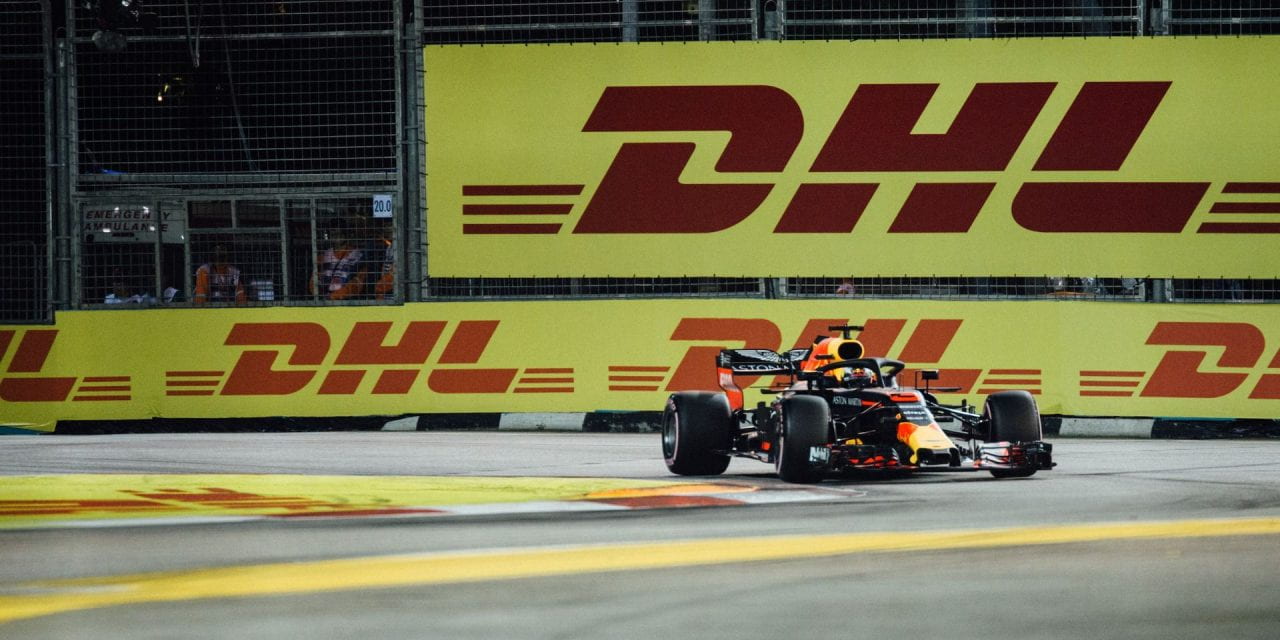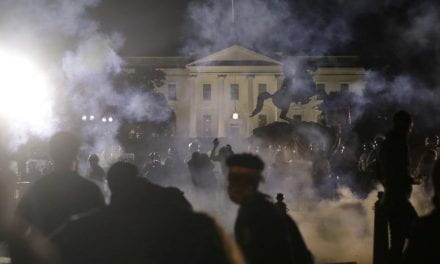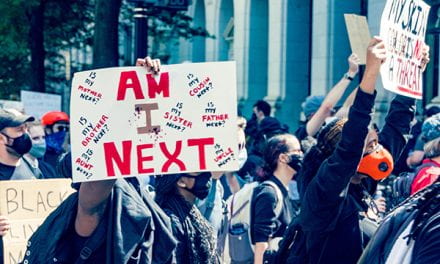“It’s lights out and away we go!” proclaims Formula One commentator David Croft on race day as fans worldwide cheer on their favorite drivers. Formula One (F1) has been the premier global motorsport league for the last half-century, with over 2.6 million fans in attendance at race events and 445 million unique TV viewers during its 2021 season. [i] The organization continues to grow massively, especially since the Netflix docuseries Drive to Survive caused F1 viewership in the United States to grow by nearly 60 percent since 2020. [ii] Formula One is immensely popular among its fans, many of whom have grown fond of Croft’s iconic tagline. For some fans outside the US, however, another line resonates more deeply: “Lewis, please save my father.”
Ahmed, the then-11-year-old son of Bahraini prisoner Mohamed Ramadhan, wrote these words in 2020 atop a drawing of 7-time world champion Sir Lewis Hamilton’s Mercedes F1 car in reference to the capture and alleged torture of his father by Bahraini officials for supporting pro-democracy movements. [1][iii] Ahmed and his father represent just one example of the many human rights violations that occur in Middle Eastern states where Formula One races, for which Formula One receives criticism from human rights advocates both internally and externally. Not only has Formula One ignored these calls for reform, but the organization agreed to a 10-year deal with Qatar, another Middle Eastern state plagued with human rights controversies, to add the country to its race schedule in 2023. [iv] As long as Formula One continues to work with host countries that have committed human rights violations, it enables these atrocities to continue as F1-related events increase legitimacy and investment opportunities for these vexed regimes. In light of this, the question arises: should F1 set aside its profits to help prevent human rights abuses?
Sporting events have historically been connected to political change in the global community. For example, the exclusion of South Africa by the International Olympic Committee (IOC) in 1970 contributed to the end of apartheid, and the 1988 Olympic events in Seoul created momentum to unseat South Korean military dictator Chun Doo-hwan. [v] However, state leaders have also used sports to distract members of the international community from egregious acts taking place within their country. This phenomenon is known as sportswashing, and while the term rose in popularity following FIFA’s awarding of the 2022 Men’s World Cup to Qatar, it dates back to when Hitler and Mussolini hosted the 1934 World Cup and 1936 Olympics respectively within their fascist states. [vi] More recently, Russia hosted the Winter Olympics in 2014 and the 2018 World Cup to distract from its illegal annexation of Crimea and crackdown on freedom of speech. [vii]
Like FIFA and the IOC, controversial regimes use Formula One as an agent of sportswashing. Bahrain, Saudi Arabia, the United Arab Emirates (UAE), and the newly-introduced Qatar—each entangled in their own human rights controversies—constitute four of the record-breaking 24 Formula One races listed for the 2023 season. [viii] In return, Formula One receives massive sums of money from hosting fees from these governments. Formula One keeps most Grand Prix circuit contracts private, but journalists estimate that each of these Middle-Eastern states pays Formula One between 40 and 55 million USD each year to keep their place on the F1 racing schedule. Notably, most other host countries pay between 20 and 30 million USD yearly, indicating the extent to which Middle-Eastern regimes value the presence of F1 racing—and the price for which F1 will overlook ongoing human rights concerns. [ix]
In April 2004, Bahrain made history by becoming the first Middle-Eastern country to host a Formula One Grand Prix. [x] Since then, its races have remained a point of ethical contention for human rights defenders. Women in Bahrain do not have the right to divorce, receive or transfer nationality, or engage in sexual relations outside of marriage equal to men; migrant workers are heavily discriminated against; and hundreds of people have been rendered stateless due to arbitrary revocations of their Bahraini citizenship. Bahrain also restricts free speech; officials arrested several demonstrators—including Mohamed Ramadhan, mentioned earlier—for participating in pro-democracy protests, several of whom remain on death row despite evidence of torture being used to extract their confessions. [xi]
In 2011, Formula One race organizers canceled the Bahrain Grand Prix due to the Bahraini government’s forceful suppression of Arab Spring anti-government activists. The Grand Prix resumed racing in Bahrain in 2012 and was met with resistance from the same opposition groups that again escalated into violent conflict. The fighting killed one demonstrator and indirectly attacked members of the Force India F1 team with several Molotov cocktails. Despite the clear risks of harm and calls from human rights groups and politicians to end race events, Formula One insisted that the race must commence that year. [xii] Formula One has since received heavy backlash for its continued partnership with Bahrain, including from Najah Yusuf, a former Bahraini civil servant who called the Grand Prix “nothing more than a way for [Bahrain] to whitewash [its]… gross human rights violations” in a 2017 Facebook post. For these criticisms, Bahraini officials jailed Yusuf for three years, during which she was allegedly beaten, groped, and sexually assaulted. [xiii] Despite expressed concern about Yusuf’s captivity by Formula One’s leaders, there are no significant indications that races will cease to be held in Bahrain for the foreseeable future. [xiv]
The presence of Formula One in the UAE and Saudi Arabia raises concerns similar to those associated with its partnership with Bahrain. Both states engage in the abusive kalafa visa sponsorship program, which gives employers near total control over the mobility of their migrant workers, and both possess loosely-written anti-discrimination laws that have adverse negative effects on women within their states. [xv] Saudi Arabia has more aggressively engaged in sportswashing, hosting an all-female wrestling event, backing the brand-new LIV Golf league, and meeting with the National Basketball Association, Major League Soccer, and Formula One in efforts to earn positive recognition throughout the international community. [xvi] However, its relations with Formula One were severely challenged in March 2022, when a Houthi missile from Yemen struck an oil facility nine miles away from the Saudi Arabian Grand Prix just two days before the race. [xvii] The attack prompted F1 drivers to discuss boycotting the race for safety concerns, but F1 leaders and Saudi Arabian officials ultimately persuaded the drivers to race. Following the Grand Prix, drivers strongly expressed concerns about returning to the country in 2023 and beyond. [xviii] To date, Formula One has not given any signs about terminating its contract with Saudi Arabia, which earns the motorsport league 55 million USD yearly and is slated to continue through 2025. [xix]
Despite several threats to Formula One staff, drivers, and fans, some within the league remain supportive of Grands Prix within these Middle-Eastern states. In the wake of violence surrounding the 2012 Bahrain Grand Prix, reigning world champion Sebastian Vettel noted the “hype” around the event as beneficial for the competitive spirit of high-level motorsport. [xx] Following the Houthi missile strike near the Saudi Arabian Grand Prix, Mercedes team principal Toto Wolff wrote off concerns as Westernized biases against Middle-Eastern cultural norms, asserting that Formula One’s presence will “make the spotlight shine on the region” and improve human rights conditions within these states as a result. [xxi] If this were the case, sports policy and politics professor Jonathan Grix argues, positive change would already have occurred in Bahrain in the last decade. Instead, Bahraini regimes have continued to repress individuals and use the death penalty against political dissidents. [xxii]
As long as Formula One continues to extend and expand its contracts with oppressive states in the Middle East, the organization is complicit in the attempts of these regimes to sportswash their cultures and distract from atrocities committed within their borders. Given the high payouts Formula One receives from these states and the motorsport league’s past ignorance of human rights violations, Formula One will likely not sacrifice hundreds of millions of dollars to cease operations in these countries. As such, new fans of the sport must be made aware of these ongoing partnerships with oppressive state leaders, spreading the stories of those like Ahmed and his father until F1 leaders face enough pressure to cease their enabling of atrocities against thousands of innocent people in the Middle East.
References
[1] Ramadhan still faces execution for murder, a crime for which he persists in claiming that the Bahraini government framed him and forcefully coerced his confession. In 2022, Ahmed made a second drawing of Hamilton’s car with the following caption: “Sir Lewis, another F1 where my father is on death-row. Please help free him.” [Jerome Pugmire, “Son of Man on Bahrain Death Row Sends Hamilton a New Drawing,” AP News (Associated Press, March 18, 2022), https://apnews.com/article/sports-auto-racing-middle-east-bahrain-lewis-hamilton-a1e1ab7a94c871a5cf23fc767e9b3e1e.]
[i] Formula 1, “Formula 1 Announces TV, Race Attendance and Digital Audience Figures for 2021” (Formula One World Championship Limited, February 17, 2022), https://www.formula1.com/en/latest/article.formula-1-announces-tv-race-attendance-and-digital-audience-figures-for-2021.1YDpVJIOHGNuok907sWcKW.html.
[ii] Aryaan Jena, “Column: F1’s Surge in Popularity Could Lead to a Third US Race,” GP Blog, Autosport International, November 5, 2021, https://www.gpblog.com/en/news/97898/column-f1-s-surge-in-popularity-could-lead-to-a-third-us-race.html.
[iii] Jerome Pugmire, “F1 Star Hamilton Vows to Fight to Improve Human Rights,” AP NEWS (Associated Press, December 12, 2020), https://apnews.com/article/bahrain-formula-one-coronavirus-pandemic-lewis-hamilton-2819d5ecb0a94651385dece0b5b7bcbe.
[iv] ESPN, “F1 Confirms 2021 Qatar GP and Ten-Year Race Deal from 2023,” ESPN (ESPN Internet Ventures, September 30, 2021), https://www.espn.com/f1/story/_/id/32310745/f1-confirms-2021-qatar-gp-ten-year-race-deal-2023.https://www.formula1.com/en/latest/article.f1-announces-24-race-calendar-for-2023.7oNRaq4kZ2bwTAmL7r6dqg.html.
[v] Dan Roan, “Democracy in Sport: An Uneasy Relationship with Politics,” BBC Sport (BBC, January 20, 2015), https://www.bbc.com/sport/football/30876799.
[vi] Kyle Fruh, Alfred Archer, and Jake Wojtowicz, “Sportswashing: Complicity and Corruption,” Sport, Ethics and Philosophy, February 2022, pp. 1-18, https://doi.org/10.1080/17511321.2022.2107697.
[vii] Dan Roan, “Democracy in Sport: An Uneasy Relationship with Politics;” Steven Pifer, “Crimea: Six Years after Illegal Annexation,” Brookings (Brookings, March 9, 2022), https://www.brookings.edu/blog/order-from-chaos/2020/03/17/crimea-six-years-after-illegal-annexation/.
[viii] Formula 1, “2023 Formula 1 Calendar Revealed: F1 Announces 24-Race Calendar for 2023,” Formula 1 (Formula 1, September 21, 2022), https://www.formula1.com/en/latest/article.f1-announces-24-race-calendar-for-2023.7oNRaq4kZ2bwTAmL7r6dqg.html
[ix] Dieter Rencken and Jesse Janse, “How Much Each Circuit on the Calendar Pays F1,” RacingNews365 (RacingNews365, January 26, 2022), https://racingnews365.com/how-much-each-circuit-on-the-calendar-pays-to-formula-1.
[x] Bahrain International Circuit, “History of Bahrain International Circuit,” Bahrain International Circuit, August 2, 2021, https://www.bahraingp.com/about-bahrain-international-circuit/history-of-bic/.
[xi] Human Rights Watch, “World Report 2021: Rights Trends in Bahrain,” Human Rights Watch, January 14, 2021, https://www.hrw.org/world-report/2021/country-chapters/bahrain#5758a3.
[xii] Brad Spurgeon, “When News Overtook the Bahrain Grand Prix,” The New York Times (The New York Times, April 17, 2015), https://www.nytimes.com/2015/04/18/sports/autoracing/when-news-overtook-the-bahrain-grand-prix.html.
[xiii] Nosheen Iqbal, “Bahrain Activist Jailed after Grand Prix Criticism Is Released,” The Guardian (Guardian News and Media, August 10, 2019), https://www.theguardian.com/world/2019/aug/10/bahrain-activist-jailed-for-criticising-grand-prix-released.
[xiv] Sean Ingle, “F1 Finally Admits Concern over Woman Jailed for Bahrain Grand Prix Protests,” The Guardian (Guardian News and Media, November 14, 2018), https://www.theguardian.com/sport/2018/nov/14/f1-woman-jailed-bahrain-grand-prix-protests.
[xv] Human Rights Watch, “World Report 2021: Rights Trends in United Arab Emirates,” Human Rights Watch, November 2, 2021, https://www.hrw.org/world-report/2021/country-chapters/united-arab-emirates#b94615; Human Rights Watch, “World Report 2022: Rights Trends in Saudi Arabia,” Human Rights Watch, January 13, 2022, https://www.hrw.org/world-report/2022/country-chapters/saudi-arabia#b94615.
[xvi] Alan Rappeport, “Saudi Arabia Embraces Western Sports to Rehabilitate Global Image,” The New York Times (The New York Times, December 2, 2019), https://www.nytimes.com/2019/12/02/business/economy/saudi-arabia-image-sports.html; Tyler Lauletta, “Saudi Arabia: Golfers Accept Multimillion Dollar Offers from Saudi-Backed Liv Golf Amid ‘Sportswashing’ Controversy,” Business & Human Rights Resource Centre, August 5, 2022, https://www.business-humanrights.org/en/latest-news/saudi-arabia-golfers-accept-multimillion-dollar-offers-from-saudi-backed-liv-golf-amid-sportswashing-controversy/.
[xvii] Andrew Benson, “Saudi Arabian Grand Prix: F1 Drivers Agree to Race despite Security Concerns after Missile Attack,” BBC Sport (BBC, March 6, 2022), https://www.bbc.com/sport/formula1/60885031.
[xviii] Laurence Edmondson, “F1 Drivers Want Talks on Future of Saudi Arabian GP after Race,” ESPN (ESPN Internet Ventures, March 26, 2022), https://www.espn.com/f1/story/_/id/33604001/f1-drivers-want-talks-future-saudi-arabian-gp-race
[xix] Dieter Rencken and Jesse Janse, “How Much Each Circuit on the Calendar Pays F1.”
[xx] Brad Spurgeon, “When News Overtook the Bahrain Grand Prix.”
[xxi] Laurence Edmondson, “Toto Wolff: F1 Can Make Middle East a Better Place,” ESPN (ESPN Internet Ventures, March 27, 2022), https://www.espn.com/f1/story/_/id/33607596/toto-wolff-f1-make-middle-east-better-place.
[xxii] Giles Richards, “F1 Claims to Nurture Positive Change but Clearly Puts Money before Morals,” The Guardian (Guardian News and Media, March 30, 2022), https://www.theguardian.com/sport/blog/2022/mar/30/formula-1-saudi-arabia-human-rights-sportwashing.







